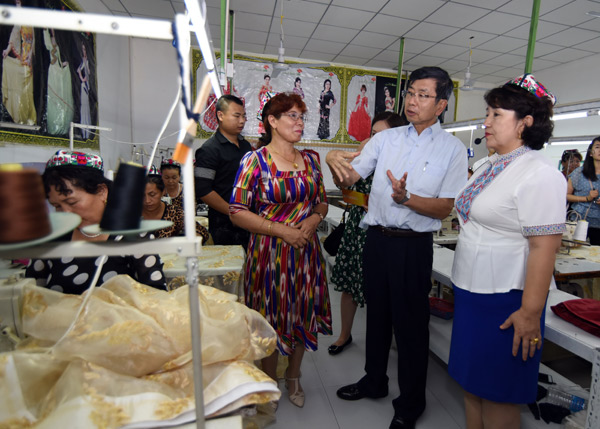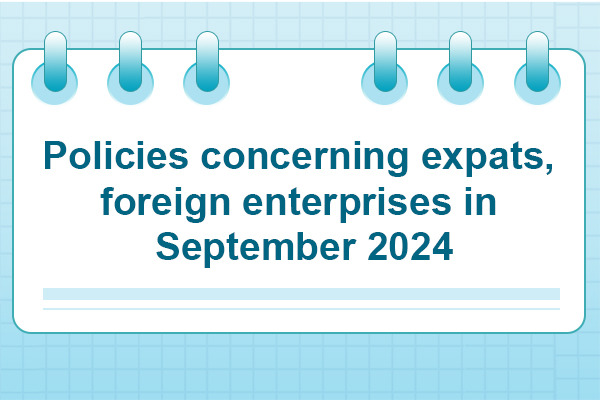ADB to back domestic projects


The Manila-based bank will invest about $2 billion in nation next year
The Asian Development Bank is planning to invest in 31 projects in China from 2018 to 2020 for a total value of $6.17 billion, with about $2 billion planned for 2018, according to its newly proposed sovereign lending program.
"ADB aims to increase its sovereign lending to China in line with the expansion of the bank's total lending capacity. The 2017 sovereign lending will reach $1.98 billion," said Indu Bhushan, director general of ADB's East Asia Department.
The international development finance institution headquartered in Manila, the Philippines, is currently financing 90 ongoing projects in China amounting to $12.3 billion. In the last two years, ADB approved new projects worth more than $1.7 billion annually in China.
Recently, its support has been moving from infrastructure-oriented projects to environmental and social sector support, thus improving the quality of growth. All new projects in China will have innovation elements, according to the bank.
It also put great emphasis on knowledge solutions, which are regarded as powerful catalysts for propelling development in China. The creation, management and sharing of knowledge is an important pillar of ADB's operations in this country.
From the time China joined ADB in 1986 through Sept 30 of this year, the financial institution has approved a total of $37.7 billion in loans to China. This comprised $33.9 billion for sovereign operations and $3.9 billion for private sector operations.
Half of the total assistance was for the transport sector, 16 percent for the energy sector, 15 percent for water and other urban infrastructure and services, and 13 percent for agriculture, natural resources and rural development.
In 2017, the bank's private sector operations department financed seven projects worth $790 million in total, excluding loans offered by commercial banks based on the premise that ADB provided credit guarantees.
For the coming years, as previously requested by China's Ministry of Finance, the bank aims to expand private sector and nonsovereign operations, with a focus on inclusive environmental projects in infrastructure, agribusiness and financial institutions, reflecting China's greater role in promoting environmentally sustainable development.
"We have been looking into public-private partnership opportunities with new concession scope, such as water, energy and food security nexus, cross-jurisdiction along the Belt and Road Initiative," Bhushan said.
ADB's country partnership strategy for China, covering 2016-20, will help the country in major areas of investments, such as managing climate change and the environment, supporting inclusive growth and promoting regional cooperation and integration.
The bank will also collaborate closely with the China-led Belt and Road Initiative and other development partners, including the Asian Infrastructure Investment Bank and the New Development Bank, to promote regional connectivity, trade and investment, and regional public goods.
Lender outlines investment goals
The ADB will support the following major areas of investments in China:
? Manage climate change and the environment. This theme encompasses the two flagship programs-Beijing-Tianjin-Hebei air pollution control and the Yangtze River Economic Belt development-as well as sustainable urbanization and other environment-related programs.
? Promote regional cooperation and integration. This theme covers support for Chinese provinces' participation in ADB's sub-regional programs (such as Central Asia Regional Economic Cooperation and Greater Mekong Subregion), the Belt and Road Initiative, and other regional initiatives.
? Support inclusive growth. This theme covers rural transformation, the revitalization of Northeast China, demographic transition (aging and education), and other social inclusion programs.
? Support institutional and governance reform. This theme covers public sector management (such as public-private partnerships, central-local fiscal relations, and eco-compensation), the financial sector, and other institution building activities (such as legal and judicial reform).
? Promote private sector and non-sovereign operations. In the coming years, ADB aims to expand private sector and non-sovereign operations, with a focus on inclusive environmental projects in infrastructure, agribusiness and financial institutions.




































